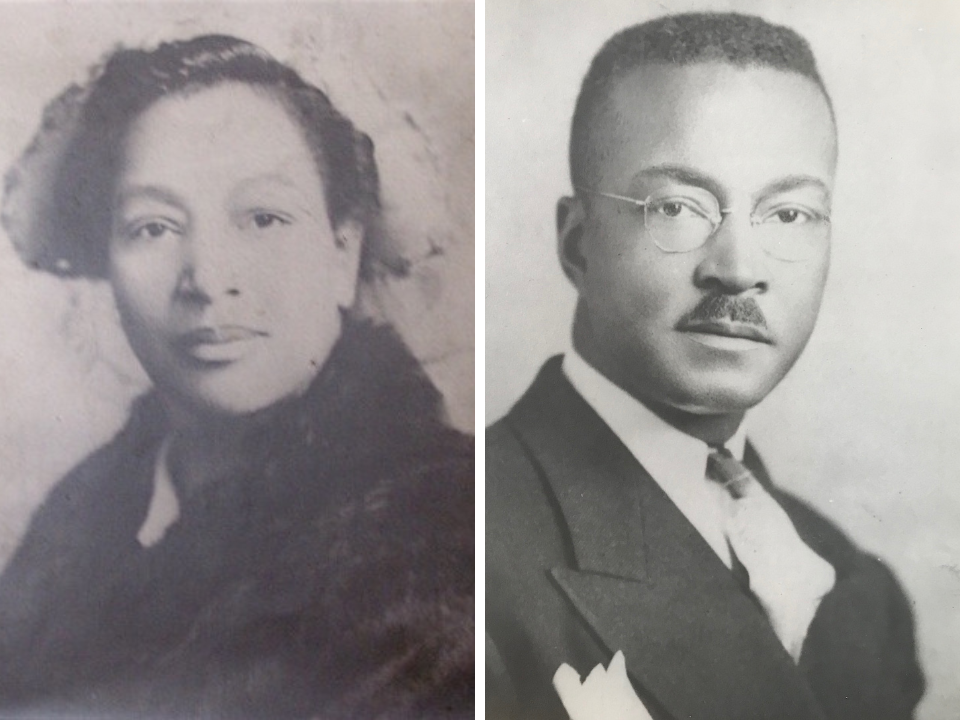
My maternal grandparents, Vivian and Hood Byers, were both born in 1900 in North Carolina
When I was pregnant with my first child, my husband and I decided to videotape interviews with family members. This was back in the day, so video cameras were big and bulky, difficult to set up. Not to mention expensive. We couldn’t afford our own, but my husband was able to borrow one from his job. We did the interviews in the evening after work and on the weekends—the only times we and everyone else were available.
It was quite the effort, but we wanted to document the experiences of our parents and grandparents We wanted their voices, mannerisms on record for the future generations to see. And I’m so glad we did it because all but one of the family members we interviewed have since passed away. However, they left us with stories about incredible adventures and resilience, and insightful history lessons.
More recently, as I conducted research for my book, I sought out the words and memories of a few World War II veterans, including my dear uncle who is now in his 90s, and other seniors who knew my family. The previous generations have so much wisdom to share if we would only take the time to listen.
Talking to our elders preserves our history and family legacies. So, if you’ve been thinking about taking the important step to document an older family member’s experiences, be sure to bring your patience and plan ahead timewise so you don’t have to rush. Here are 5 other things to keep in mind:
1. They Will Go Off-Topic. Alot.
You may end up speaking with someone who gives you one-word answers, but more than likely your interviewee will answer your questions and give you a whole lot more. TMI, some would say. Seniors have a lifetime of experiences and memories, and they will delight in having a captive audience. One story, one answer will inevitably lead to another and another and another that had absolutely nothing to do with your initial question. So, make sure you have plenty of time for your interview. You may be surprised at how much you enjoy all of the extra stories. Listen intently and bring your patience. Then, politely wrap things up by telling your interviewee that you’d love to hear more, but you have other questions you must get in before you have to get going.
2. They Will Repeat the Same Story, and Each Time It May Be Different.
You may need to circle back to a question you asked, whether it’s later in the conversation or on another day. I sometimes do this for the sake of clarity. Just be aware that your interviewee’s second response may be different than the first one. Obviously, as we get older our memory starts to fade, so it’s easy for seniors to get confused. Don’t be afraid to address any disparities. Be kind in how you point them out, and give your interviewee time to think about their answers, even if there is an awkward silence. Then, use gentle prompting to help them remember. They will either stick with a particular answer, or they will confess to being uncertain. Either way, accept their response and move on.
3. Some of Their Revelations Could Be Hurtful To You.
When it comes to interviewing older family members or friends, brace yourself. They may reveal some things that are contrary to what you believe, and that could be hurtful. You may have grown up thinking your Aunt Mable was the bomb, only to have your interviewee tell you that she was stingy and never helped anyone. You may think that a certain politician or activist in American history represented progress for the country, only to have your interviewee tell you that person was bad for America. You may feel the need to voice your opposition, and I think a healthy dialogue is great, so long as you stay calm and respectful. Just realize that most people get stuck in their beliefs once they reach a certain age. You may just have to agree to disagree.
4. They May Hold Back Information, As To Not Be Hurtful.
This is the other side of #3. Your interviewee may not be forthcoming in their answers or about their true feelings because they don’t want to hurt you. You’ll be able to tell if someone is choosing their words extra carefully or holding back. You can always tell them that you would really appreciate their complete honesty in answering your questions. But, make that decision based on whether or not you’re prepared to hear the truth.
5. They Will Challenge Your Knowledge of History.
Your interviewee may not berate you for your lack of knowledge in something of historical importance, but you could walk away feeling like you don’t know as much as you should. That’s actually a good thing. Chances are, growing up, you received abbreviated and inaccurate lessons in history. But these days, there’s just no excuse. You can find just about everything online, including books which are easier to buy now than ever before. I’ll be the first person to say I used to fall asleep in history class, but now I’m fascinated by it –how things came to be and why. There’s always a catalyst. There’s always another point of view. Be curious. Strive to understand. It will make you a better, more informed, and compassionate person.
